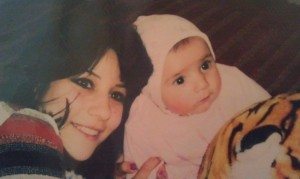




 |
 |
 |
 |
 |
VIP Forums Muzblog Chat Games Gallery. Ôîðóì, ìóçäíåâíèêè, ÷àò, èãðû, ãàëëåðåÿ. |
||||
|
||||||||
| Diaspora News and events in Armenian and other diasporas. |
Domestic Violence in Armenia: An Ugly Crime Still Denied |
LinkBack | Thread Tools | Display Modes |
|
|
#1 (permalink) |
|
Top VIP VIP Ultra Club
Join Date: Jan 1970
Posts: 12,055
Rep Power: 69
 |
Special for the Armenian Weekly
Zaruhi Petrosyan was a young mother of a two-year-old infant girl when her life came to an end after an alleged fall down a flight of stairs. At the time, her husband claimed that the death had been an accident. However, her bruised and battered body attested to beatings that had extended over a long period of time. This was more than sufficient evidence to bring her unfortunate death to the public’s attention.  Maro Guloyan died at the age of 20. She had an infant child and was pregnant with her second baby. Activists say the marks on her neck indicate death by manual strangulation. The court accepted her husband’s claims that she committed suicide. Maro Guloyan died at the age of 20. She had an infant child and was pregnant with her second baby. Activists say the marks on her neck indicate death by manual strangulation. The court accepted her husband’s claims that she committed suicide.As yet, domestic violence is not part of public discourse either in Armenia or the diaspora. Men may shrug off its existence by saying that while it might exist, it is very much exaggerated. Some may add the gratuitous comment that an occasional slap does not rise to the level of domestic violence. One would assume that women would be more sympathetic to this problem, yet some fail to identify with the hell that countless numbers of their counterparts endure daily. Others refrain from vocalizing their outrage—sometimes for fear of being labeled a feminist or being accused of attacking “family values.” Whatever the reason, the fact remains that there are men who routinely brutalize their wives to the point where the hapless victim begins to doubt her self-worth—doubts that may well lead her to believe that the stinging slap across the face or the punch to the body was deserved because she had failed as a wife or mother. If this physical violence was not sufficient, she may have to endure being reprimanded or ridiculed in front of her children, eroding what remaining self-esteem or authority she may have left within the family. The difficulties associated with raising public awareness with respect to domestic violence may lie in the fact that it remains a hidden, unrecognized crime. It is a crime carried out within the isolated confines of the home. It is a crime usually with few if any compassionate witnesses. It is a crime that may be stoically endured by the victim because she may falsely believe that the punishment is deserved. Victims who are engaged with the public on a daily basis will try to hide their bruises while other victims may be punished by being prevented from seeing friends or family. Many of these women fear reprisal by their husbands if they seek help, while others, even knowing that help is available, may not have the strength, courage, or opportunity to escape their intolerable situation. Having young children only increases their difficulty in seeking help. As a result, the number of cases of domestic violence that are officially recorded bears no relationship whatsoever to the prevalence of the problem in Armenia. Unfortunately, this only fortifies those who do not accept domestic violence as a serious problem.  Diana Nahabedian died at the age of 35. She was knifed 21 times by her husband in front of their two teenage daughters who were unable to save their mother from their enraged father. Diana Nahabedian died at the age of 35. She was knifed 21 times by her husband in front of their two teenage daughters who were unable to save their mother from their enraged father.Oct. 1 has been set aside by the Coalition to raise awareness of domestic violence, sexual assault and harassment, trafficking, and child abuse. It was on that date in 2010 that Zaruhi Petrosyan’s lifeless body was found. The Coalition, formed that year, is now comprised of eight organizations that have dedicated Oct. 1 as the National Day Against Domestic Violence in Armenia. In death, Zaruhi Petrosyan has become the face and name of countless of her unfortunate sisters (and oftentimes their children) who have been and continue to be subjected to a form of male behavior that has no place in Armenian society. The annual daylong informational program to raise public awareness of domestic violence in Armenia will begin with a rally in Republic Square and Yerevan districts calling attention to a crime against women that the government has failed to acknowledge through appropriate legislation. In the afternoon, the program moves to “Swan Lake” and ends with an evening candlelight vigil in memory of Zaruhi and countless other victims of domestic violence. Meaningful change can come only when domestic violence, its prevalence, and the toll it takes on its victims and on our nation is recognized by the public. For those who have admitted knowing someone who was a victim of domestic violence or acknowledge its existence, Oct. 1 is an opportunity to support the Coalition by being present for the daylong program. For skeptics and others who have yet to accept domestic violence as a serious issue, it is also an opportunity to listen to the speakers and read with an open mind in the comfort of their home the literature that will be available. I have purposely refrained from citing the data from the many studies, interviews, and anecdotal accounts that are readily available. The daylong program will provide more than sufficient data to validate the concerns of the Coalition. Unfortunately, it is a difficult path that the Coalition has taken in a society where many are ambivalent to the issue of domestic violence or simply refuse to accept its existence. Through the tireless efforts of the women and men of the Coalition, the process of forcing domestic violence into the national dialogue has begun, and the full extent of domestic violence in all its permutation and its toll upon its victims and on our nation is beginning to be exposed. Maro Matosian, the director of the Women’s Support Center states that “the more cases become public, more women call our center and our shelter—the only one for victims of domestic violence—which is filled beyond capacity with battered women and their children.” Let it be said again and again and again. There can never be a situation that can ever justify a man striking a woman. This is a lesson learned as a child from my widowed mother, and it is a lesson that should be ingrained in every boy and reinforced in every man. I still remember a kind lovely Armenian neighbor that my mom would visit with me in tow as a youngster. Her husband was known to physically abuse her. Years later when she died I attended her wake. Now she has peace was on the lips of every knowing woman mourner. How is it possible to have a female friend at any stage of your life or to profess your love for a woman and still believe that you can abuse her? More information on the Coalition to Stop Violence Against Women can be found at www.coalitionagainstviolence.org. More information on the Women’s Support Center can be found at www.womensupportcenter.org. The post Domestic Violence in Armenia: An Ugly Crime Still Denied appeared first on Armenian Weekly. Special for the Armenian Weekly Zaruhi Petrosyan was a young mother of a two-year-old infant girl when her life came to an end after an alleged fall down a flight of stairs. At the time, her husband claimed that the death had been an accident. However, her bruised and battered body attested to beatings that had extended over a long period of time. This was more than sufficient evidence to bring her unfortunate death to the public’s attention. Maro Guloyan died at the age of 20. She had an infant child and was pregnant with her second baby. Activists say the marks on her neck indicate death by manual strangulation. The court accepted her husband’s claims that she committed suicide. It would not be surprising if most Armenians do not recall her name or remember the circumstances that led to her death. Zaruhi was not the first—nor has she been the last—victim of domestic violence, a crime that is still not recognized in the Armenian Penal Code. It is a form of behavior rooted in the mores of conservative, patriarchal societies. A complex set of life experiences that amplifies the sense of entitlement that is imparted to males during their [...] The post Domestic Violence in Armenia: An Ugly Crime Still Denied appeared first on Armenian Weekly. Special for the Armenian Weekly Zaruhi Petrosyan was a young mother of a two-year-old infant girl when her life came to an end after an alleged fall down a flight of stairs. At the time, her husband claimed that the death had been an accident. However, her bruised and battered body attested to beatings that had extended over a long period of time. This was more than sufficient evidence to bring her unfortunate death to the public’s attention. Maro Guloyan died at the age of 20. She had an infant child and was pregnant with her second baby. Activists say the marks on her neck indicate death by manual strangulation. The court accepted her husband’s claims that she committed suicide. It would not be surprising if most Armenians do not recall her name or remember the circumstances that led to her death. Zaruhi was not the first—nor has she been the last—victim of domestic violence, a crime that is still not recognized in the Armenian Penal Code. It is a form of behavior rooted in the mores of conservative, patriarchal societies. A complex set of life experiences that amplifies the sense of entitlement that is imparted to males during their [...] The post Domestic Violence in Armenia: An Ugly Crime Still Denied appeared first on Armenian Weekly. [img][/img] More... |
|
|

|
|
|
|